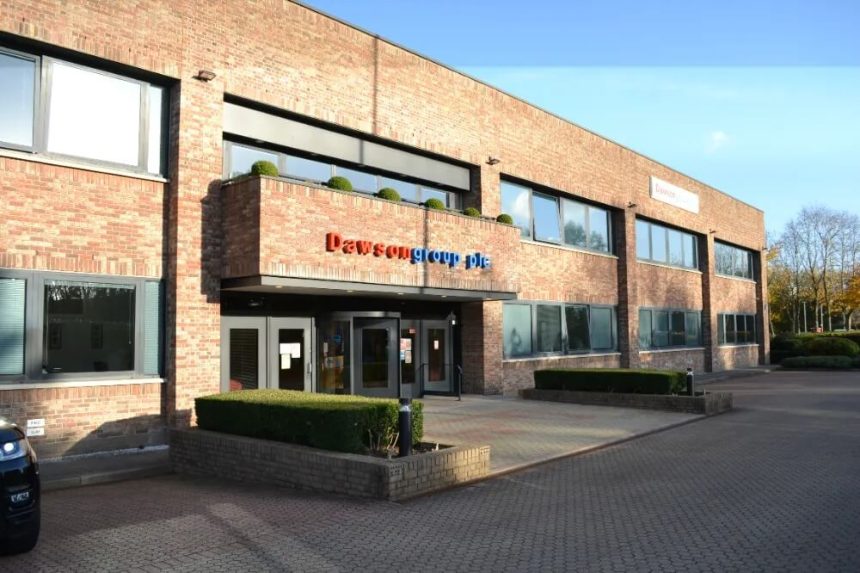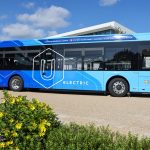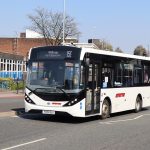Thirty years ago saw the founding of Dawsongroup Bus and Coach. Amid many changes for the industry over that time, the coach and bus rental specialist continues to go from strength to strength.
A clear illustration of its recent success is that turnover has almost doubled since 2019 — despite the COVID-19 pandemic’s turbulent effect on the sectors.
The success story was initially one of luck and good timing, routeone hears, but more recently listening to customers and supporting them through the pandemic proved to be positive factors.
Out of those 30 years, Managing Director Paul Sainthouse has been with the business for about 29 and a half.
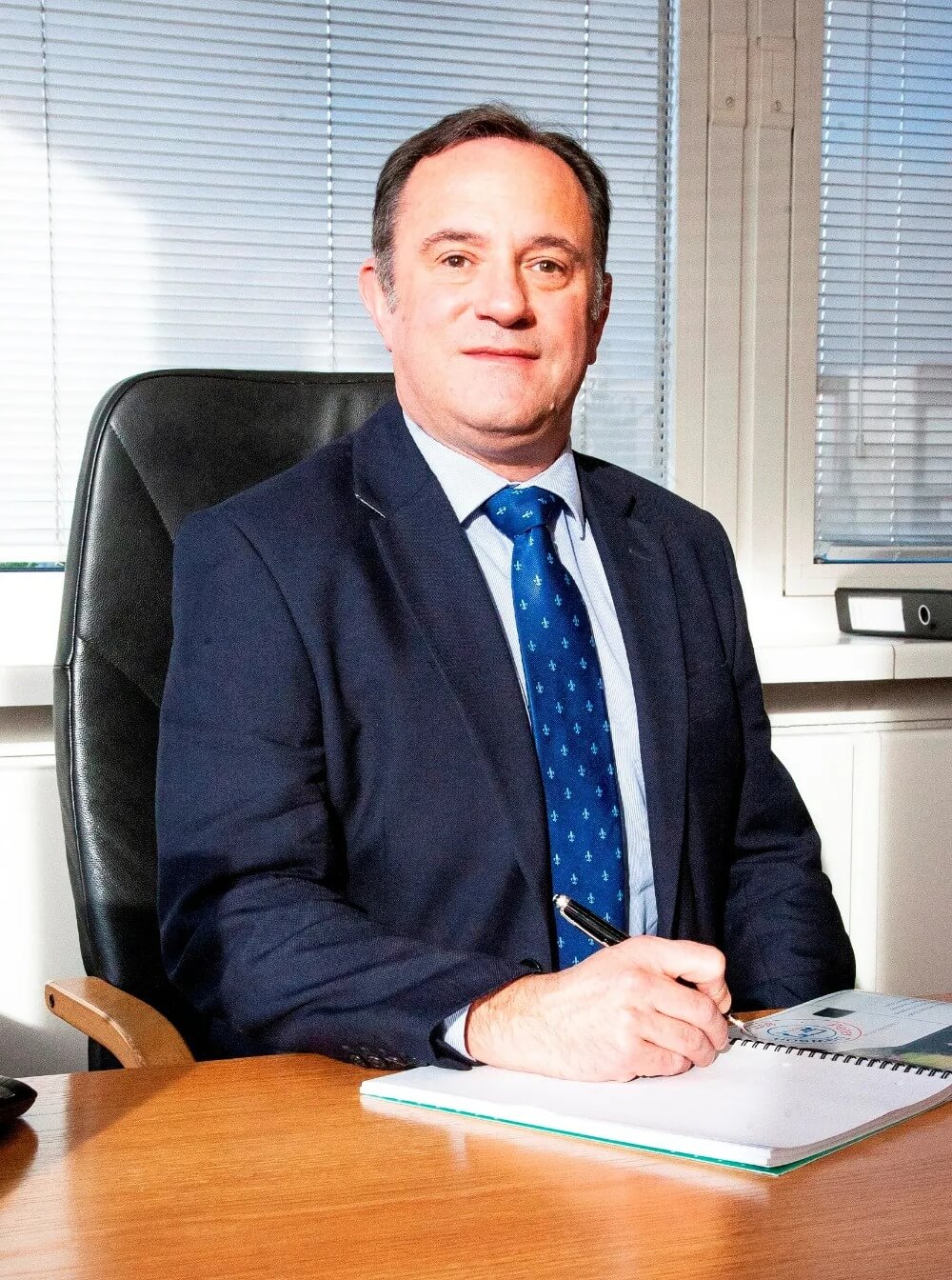
As a former International President of the Chartered Institute of Logistics and Transport International, a Director of Women in Bus and Coach, a board member of the Confederation of Passenger Transport (CPT) and Secretary and Advisory Board member of the All-Party Parliamentary Group for the Road Passenger Transport Industry, few have such a broad industry knowledge, which he has amassed over 40 years.
He began as Fleet Operations Manager of the fledgling Dawsongroup subsidiary in 1995.
Summarising the 30 years, he says: “We’ve taken a project that was part of our diversification programme and turned it into one of the group’s leading businesses. It’s been a bumpy 30-year journey but, ultimately, it’s been very good.”
Good timing and success
As Paul explains, the business began the coach and bus project at the right time, partly because of the relatively new commercial market following deregulation.
“It was an exciting time for us to be around and an exciting time for the industry as well, where the future looked positive, and it was really a case of ‘where we were going to take this next?’” he recalls, adding that the introduction of low-floor buses was also pivotal.
He says: “I wouldn’t say it was by judgement but, by luck, we came into this just as the high-floor vehicles were coming to an end and the low-floor vehicles were coming and, of course, we were a great facilitator of access to low-floor vehicles because we were buying the stock and we were taking those to the market and allowing people to try this new tech without having to invest in it themselves.”
We’ve made it our mission to listen to our customers, listen to the industry, to monitor things far more closely
Within five years, Dawsongroup Bus and Coach had around £150 million in capital invested in the industry, says Paul, who recalls a “period of consolidation” in the mid- to late-2000s.
He says: “A number of vehicles at that point were starting to return to us and we had exposure to things which, with hindsight, we’d have preferred not to have had exposure to, for example, over 140 of London’s articulated buses, which didn’t really work out as we’d have hoped.”
By around 10 years ago, the business was very much on the up again and the progress, if anything, intensified during the pandemic when the coach sector ground to a halt.
“We’ve made it our mission to listen to our customers, listen to the industry, to monitor things far more closely and to make sure we’ve done everything we possibly can to do the right thing at the right time for the right people with the right products,” Paul says.
“During the Covid period, we took a certain view. We supported our customers where they needed to be supported to the extent of extending facilities on £7-8 million of debt in order to allow our customers to try and find ways to trade during difficult times.”
He points out that the business retained staff on full wage during the pandemic and returned furlough scheme money to the government “on the basis that we felt we traded positively out of it”.
He adds: “We didn’t cancel one vehicle we had on order, we continued to take the vehicles into our fleet, even though it was a struggle to find the customers, and we continued to honour our obligations.”
Zero-emission vehicles
Dawsongroup Bus and Coach has zero-emissions vehicles on its books and expects to buy more next year, but Paul concedes that the fact that these are rarely funded without government support means the business has not been able to benefit from the trend.
He is concerned that government grants are “masking the true cost of the technology” and adds: “In reality, what we need to do is find a way of making it work without government money because, if you’re an operating company and your business is only viable when the government continues to bankroll your capital assets, that is not viable if, who knows what happens in future, they decided to stop — that’s a bit of a problem.”
In reality, what we need to do is find a way of making [zero-emissions] work without government money
He believes that zero-emissions vehicles will hold their price but that the uncertainty for operators will come from other factors such as safety standards or autonomous driving, which he thinks have the capacity to render vehicles obsolete before the battery does.
Alluding to a time of unprecedented evolution of technology possibly on its way, he says: “The wise businesspeople that are going to be operating in the future are mindful of all of the different factors that are going to affect the whole vehicle operating landscape in the future and not simply zero-emission.”
Current trends
In a burgeoning market — “any type of coach at the moment will probably quite readily find a home” — Paul has noticed certain trends.
He says: “Now people are far more cost-sensitive than they previously were and canny operators are recognising that a vehicle that’s of a more basic specification but does exactly the same job is earning them the same money for less than maybe previously, when polished alloy wheels, on-board vacuums and luxury seats and whatever were the norm.”
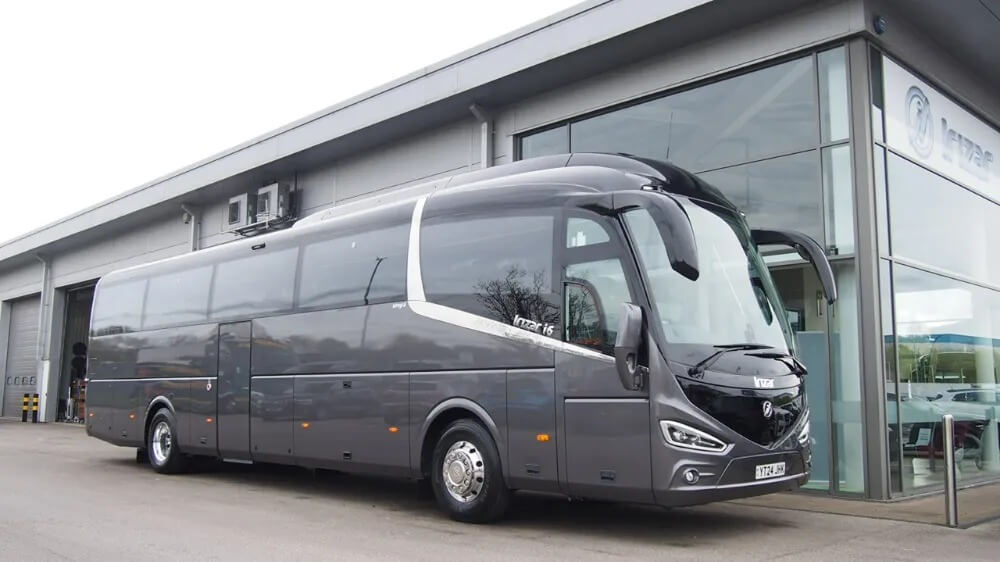
He adds that double-deckers such as Alexander Dennis’s (ADL) Enviro400 are popular among operators right now, due to being suitable for work previously handled by more expensive coaches.
Despite ADL concentrating, in the immediate future, on production of electric buses rather than the Plaxton coaches in which Dawsongroup Bus and Coach has historically invested heavily, Paul says: “We’ve never been solus with ADL and the fact it is not building [Plaxton] now simply means we will buy more Mercedes-Benz Tourismo or Irizar stock, for example. It won’t impact on our business.”
Confidence in the future
Paul observes that Dawsongroup Bus and Coach’s success is reflected by that of the industry since the end of the pandemic, with “remarkably few business failures”.
He adds: “And that gives us confidence to deal with more and more different types of people because, if most of them make a go of it, we can be braver about who we accept as customers and who we manage to put good-quality vehicles into.”
He says of the current success: “We’ve got the largest asset book we’ve probably ever had and we’ve got the longest guaranteed future contract revenue that we’ve ever had, which is a vote of confidence from our customers.”
Looking back on his time with the business, he concludes: “If you’d asked me 30 years ago if I’d still be here, I’d say no way. But I’m delighted I am. I’m in a position where I choose to do this — not because I have to. And I genuinely enjoy being part of the passenger transport profession.
“I think we’ve got a very exciting time ahead because mass passenger transport in all of its forms delivers on so many levels, be that environmental, social or economic.”




















